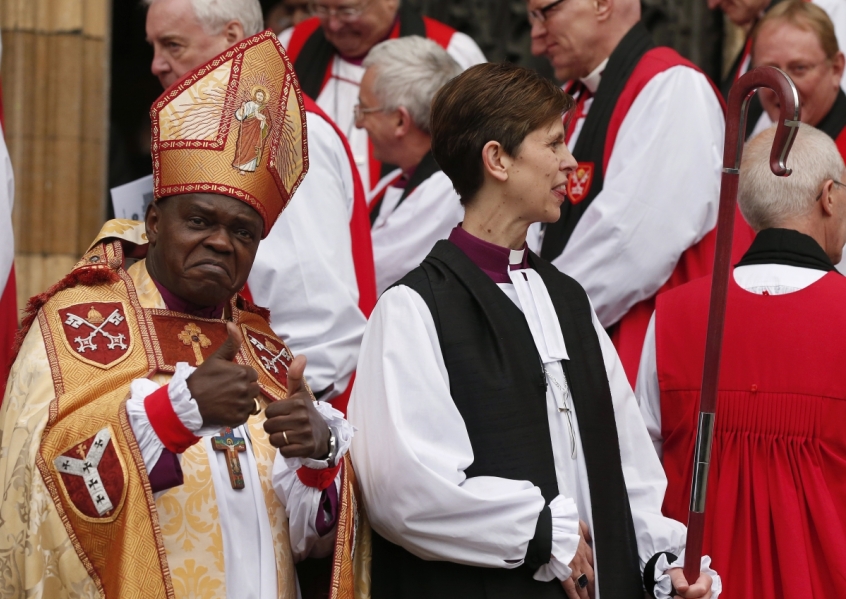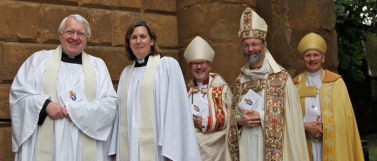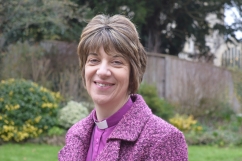
Campaigners for women's ordination are calling on the Church of England to silence an objector who has interrupted the last four consecrations of women bishops.
Women and the Church has written to the Archbishop of Canterbury, Justin Welby, outlining why the objector's protest during the liturgy "undermine the women being consecrated" – and all women, and therefore the Church as a whole.
The organisation wrote: "Such interruptions create the perception that the Church is willing to allow a woman who has been called by God and the Church, and appointed by the Crown, to be publicly insulted and undermined.
"If that is so, it undermines and insults all women: and especially women for whom female bishops are potent symbols of a radical shift in the Church's treatment of women. 'Maybe things haven't changed at all, underneath', they might conclude."
Two women diocesans and eight women suffragans have now been consecrated bishops in the Church of Engand.
At the last four consecrations of female bishops, the same objector has asked to voice the same objection. It is believed the man, a minister, leads an independent church and is not even a member of the Church of England but is nevertheless allowed to interrupt the service.
In St Paul's Cathedral last September, when Ruth Worsley was consecrated suffragan bishop of Taunton and Anne Hollinghurst suffragan bishop of Aston, he was ushered from the centre of the cathedral as he began to speak.
One observer at that service told Christian Today: "When the protestor began his ranting intervention, the Bishop of London, Richard Chartres, intervened swiftly. Instead of shouting the man down, he very calmly walked over to where the man was remonstrating, under the giant dome of St Paul's Cathedral.
"Chartres placed himself physically between the man and the women being made bishop and made it very clear that this kind of behaviour was to be answered with quiet dignity. A masterclass in showing up an empty vessel."
At York last November, when Christine Hardman was consecrated Bishop of Newcastle, he was made to stay outside the Minster.
But at Westminster Abbey in February, when Karen Gorham was consecrated suffragan bishop of Sherborne, he was actually given a microphone to speak. Westminstery Abbey declined to comment to Christian Today.
And at Canterbury last month, the Dean announced during his welcome that the objector would be speaking, and again he was given space to speak as Jo Bailey Wells was consecrated suffragan bishop of Dorking and Jan Macfarlane suffragan bishop of Repton. The protestor at this service was named by Kent Online as Rev Stephen Holland, a minister from an independent church in Lancashire.
Jane Walker of Canterbury Cathedral told Christian Today: "It had been advised that an objection was to be raised during the ordination and consecration of two bishops in Canterbury Cathedral last month. This objection was heard when the congregation was asked, 'Is it now your will that they should be ordained?' The question was then repeated and following a resounding affirmation from the congregation, the service continued."
Hilary Cotton, chair of WATCH, said: "I hope we can now say that his objection has been fully voiced and that from this point onwards consecration services should proceed without his objection being given space."
After the Westminster Abbey consecration, WATCH wrote to the Archbishop of Canterbury asking that such interruptions to the service cease to be enabled and was assured that such practices were not enabled, but that there could be no guarantee that they would not occur without warning.
Cotton added: "It is worth noting that this is not like an objection at a marriage service: here, there can be no legal objection to the consecration: the Royal mandate is read aloud under which the consecration must take place."
WATCH is concerned that the objections are not only being enabled but seem to be becoming becoming a part of a liturgy.
At Canterbury, to challenge and subvert this, Cotton stood up and walked out when the objector began to give voice, speaking over him with the words: "I resist this expression of discrimination."
"The words used echoed the words of the sermon, where we as a church had been urged to stand up against discrimination, especially in these uncertain times. The words also indicated no personal antipathy towards the objector," WATCH said on its website. "At the next consecration of female bishops, we hope that things will be arranged differently."
WATCH is urging members to write to cathedral deans protesting at the objector being allowed to protest in this way.
Christian Today has contacted the Church of England for comment.















